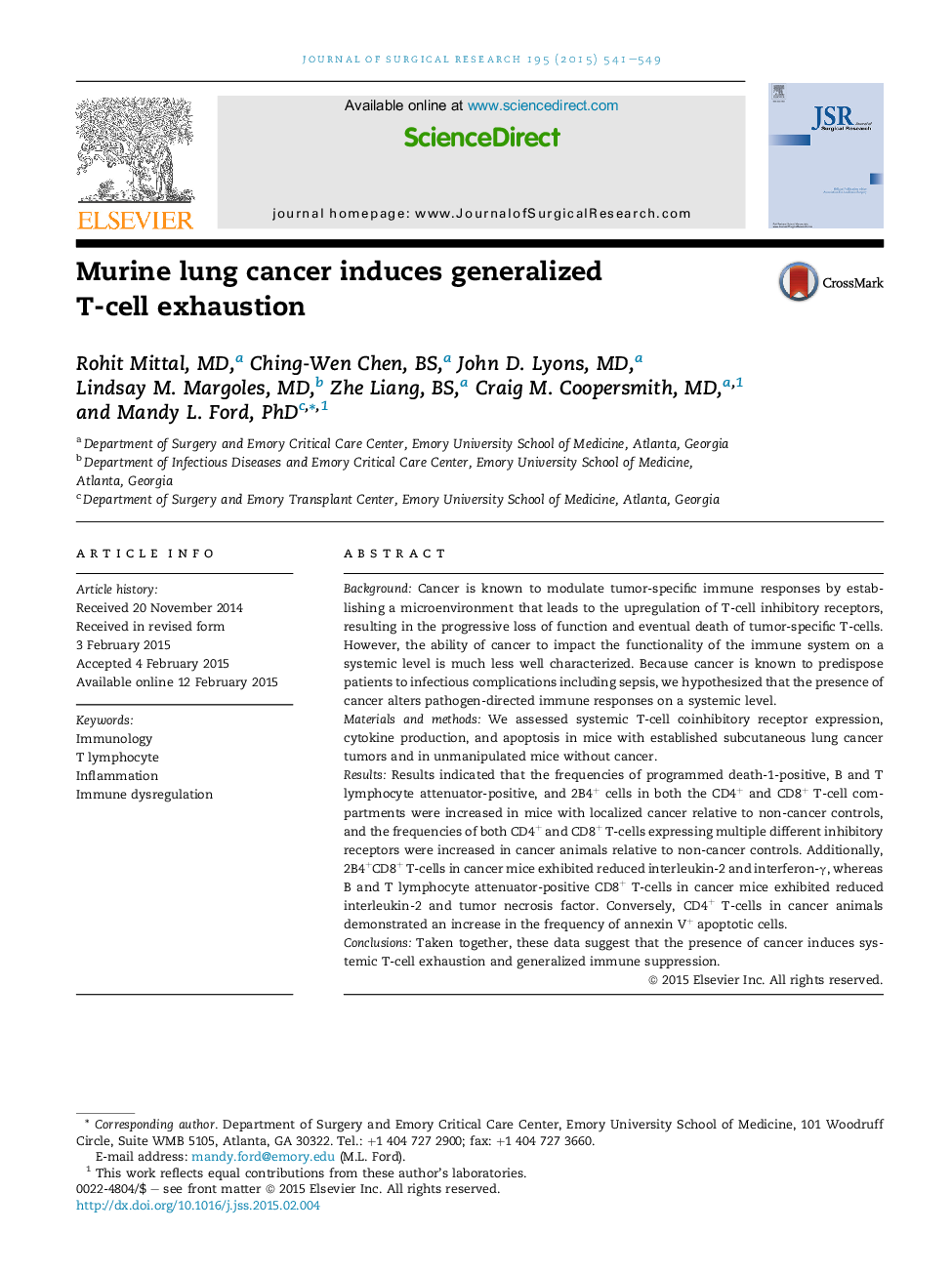| Article ID | Journal | Published Year | Pages | File Type |
|---|---|---|---|---|
| 4299686 | Journal of Surgical Research | 2015 | 9 Pages |
BackgroundCancer is known to modulate tumor-specific immune responses by establishing a microenvironment that leads to the upregulation of T-cell inhibitory receptors, resulting in the progressive loss of function and eventual death of tumor-specific T-cells. However, the ability of cancer to impact the functionality of the immune system on a systemic level is much less well characterized. Because cancer is known to predispose patients to infectious complications including sepsis, we hypothesized that the presence of cancer alters pathogen-directed immune responses on a systemic level.Materials and methodsWe assessed systemic T-cell coinhibitory receptor expression, cytokine production, and apoptosis in mice with established subcutaneous lung cancer tumors and in unmanipulated mice without cancer.ResultsResults indicated that the frequencies of programmed death-1-positive, B and T lymphocyte attenuator-positive, and 2B4+ cells in both the CD4+ and CD8+ T-cell compartments were increased in mice with localized cancer relative to non-cancer controls, and the frequencies of both CD4+ and CD8+ T-cells expressing multiple different inhibitory receptors were increased in cancer animals relative to non-cancer controls. Additionally, 2B4+CD8+ T-cells in cancer mice exhibited reduced interleukin-2 and interferon-γ, whereas B and T lymphocyte attenuator-positive CD8+ T-cells in cancer mice exhibited reduced interleukin-2 and tumor necrosis factor. Conversely, CD4+ T-cells in cancer animals demonstrated an increase in the frequency of annexin V+ apoptotic cells.ConclusionsTaken together, these data suggest that the presence of cancer induces systemic T-cell exhaustion and generalized immune suppression.
